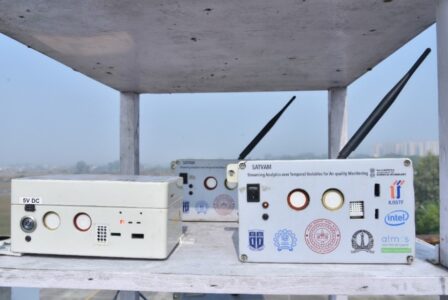Ambient air quality Monitoring over Rural areas using Indigenous Technology

The SATVAM (Streaming Analytics over Temporal Variables from Air quality Monitoring) initiative has been developing low-cost air quality (LCAQ) sensor networks based on highly portable IoT software platforms. These LCAQ devices include PM2.5 as well as gas sensors. A unique feature of this low-cost sensor deployment was a swap-out experiment wherein four of the six sensors were relocated to different sites in the two phases. The swap-out experiment was crucial in investigating the efficacy of calibration models when applied to weather and air quality conditions vastly different from those present during calibration. A novel local calibration algorithm was developed based on metric learning that offers stable and accurate calibration performance.
If you have any questions or need help, feel free to contact with our team.
302, Rayaba, Vidhate Business Park,
New DP Rd, Aundh, Pune 411007, India
©2022 Respirer Living Sciences Pvt. Ltd., All Rights Reserved.
